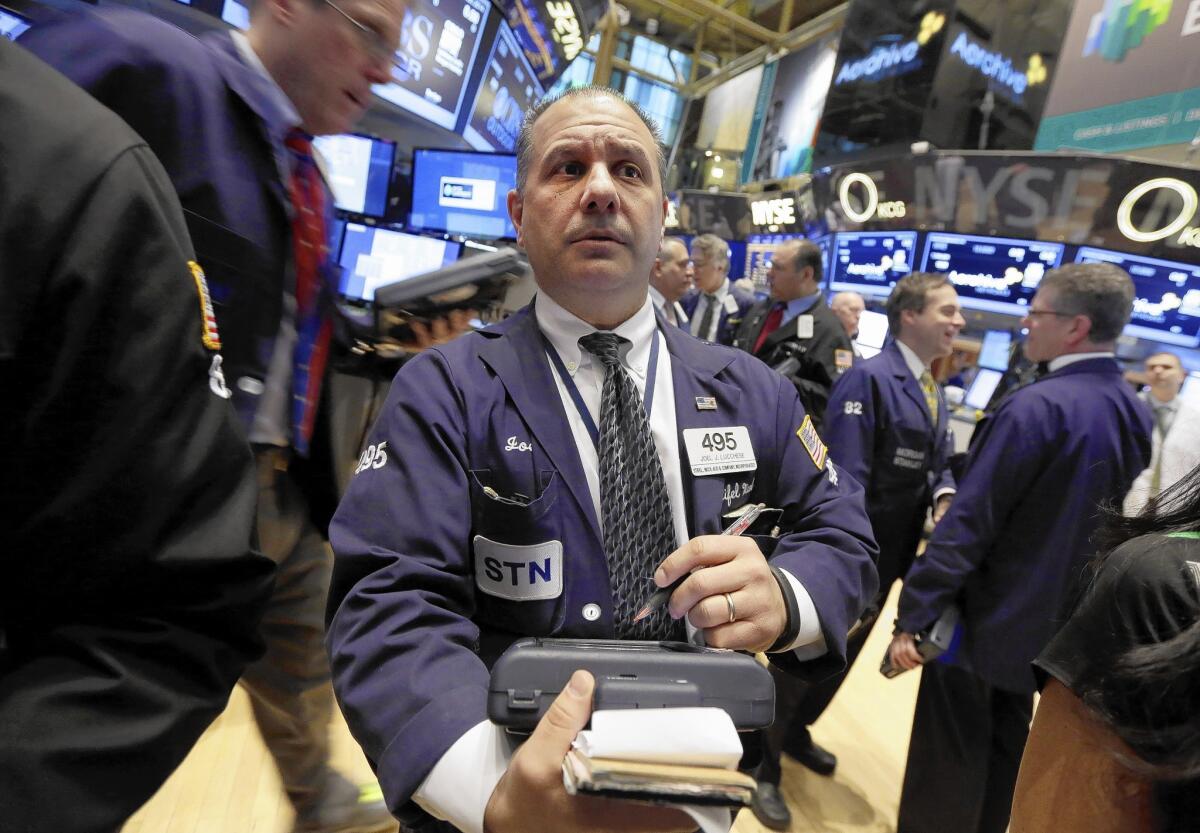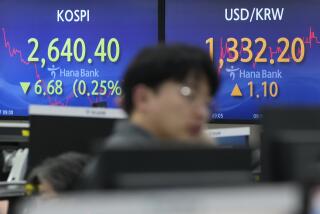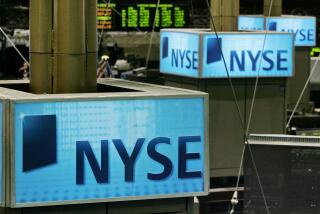Weak corporate earnings could put pressure on stock prices

The stock market is hitting new highs — just as corporate profit growth is slowing to a crawl.
Rising earnings helped drive share prices to a series of record peaks in the last few years. But that dynamic could be tested this week when companies such as Alcoa Inc. and JPMorgan Chase & Co. begin releasing first-quarter results.
Quarterly profits are expected to drop for just the second time in four years.
The decline would be relatively small: 1.2% for companies in the Standard & Poor’s 500 index, according to FactSet Research Systems. Wall Street hopes that it will be nothing more than a blip caused by frigid temperatures that gripped the country in January and February.
Still, that’s a big change from the 4.3% jump that analysts expected at the start of the year.
Earnings will get close scrutiny given that the bull market is in its sixth year, which is fairly long by historic standards. A longer or more pronounced bout of weakness could put pressure on stock prices whose valuations are a bit stretched.
Of the 111 companies that have made first-quarter pre-announcements, 93, or 84%, have warned that results will disappoint, according to FactSet.
That far exceeds the 65% average over the last five years. And it’s just shy of the record 95 warnings in the fourth quarter of last year.
Analysts chopped estimates for several large companies, including Bank of America Corp., Citigroup Inc., Amazon.com Inc. and General Motors Co., according to FactSet.
“Slowing growth globally is a concern,” said Gregory Padilla, a portfolio manager at Aristotle Capital Management in Los Angeles.
Many investors aren’t worried. The profit slide, they say, will reverse itself as the year progresses and the U.S. economy gathers steam. Just wait, they say.
“I do not read into it by any means that it’s a lessening of the underlying sustainability of economic strength,” said Tom Galvin, a portfolio manager at City National Rochdale.
That logic got a boost Friday when the government reported that employers added 192,000 net new jobs in March and a revised 197,000 in February.
The drop in corporate profits might prove to be short-lived. Analysts expect profit growth to re-accelerate quickly: up 7.6% in the second quarter and 10.9% in the second half of the year.
Thus far, investors seem to believe that earnings will right themselves. Stocks tumbled Friday, but the S&P 500 still is up 1% this year after bolting nearly 30% last year.
Several companies have blamed frigid weather for weighing on earnings, including Darden Restaurants Inc. and FedEx Corp.
Bulls base their optimism in part on the way the earnings game is played on Wall Street. Companies often talk down their prospects to suppress analyst estimates. The goal is to make it easier to beat the numbers later on, giving the stock a boost in the process.
It’s a process that repeats every quarter, said Randy Frederick, managing director of trading and derivatives at the Schwab Center for Financial Research.
“As they announce their earnings and beat their estimates, they announce a gloomy quarter [to come] to set themselves up to beat the estimates again,” Frederick said.
Many analysts think that first-quarter numbers will end up positive as companies exceed projections.
“Expectations are incredibly low,” said Sam Stovall, chief equity strategist at S&P Capital IQ. “It would be challenging for Wall Street not to exceed analyst expectations.”
Still, investors worry that higher profits may be due as much to cost cuts and financial engineering as to rising sales. Revenue is projected to rise a mere 2.3% in the first quarter, according to FactSet.
Companies have boosted per-share earnings by repurchasing stock at a rapid clip. Buybacks improve earnings per share by spreading profits across a smaller number of shares.
Companies spent $478 billion last year on share repurchases, a 28.5% jump from 2012, according to FactSet.
There’s no doubt that the stock market also has been propelled by an increase in valuations. The S&P 500’s forward price/earnings ratio is 15.5, up from the five-year average of 13.2, according to FactSet.
Some people worry that valuations are getting stretched, but bulls dismiss that notion.
“They’re still not anywhere near close to the danger zone,” Galvin said.






